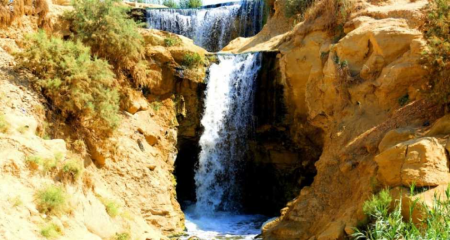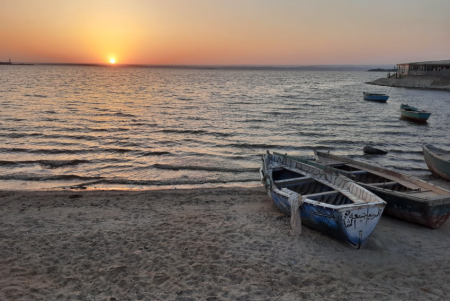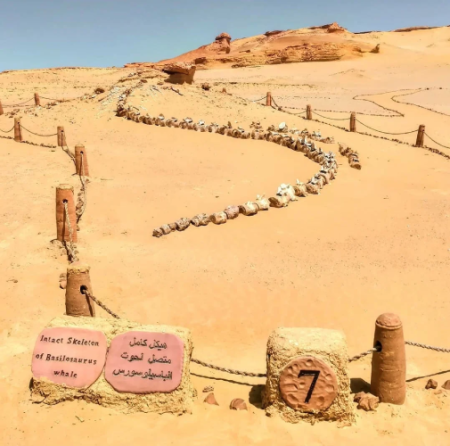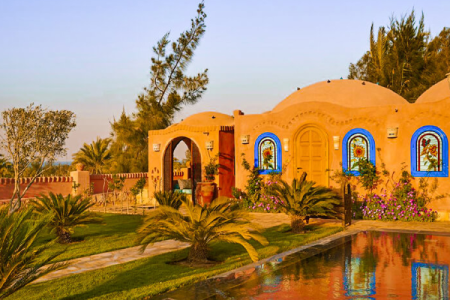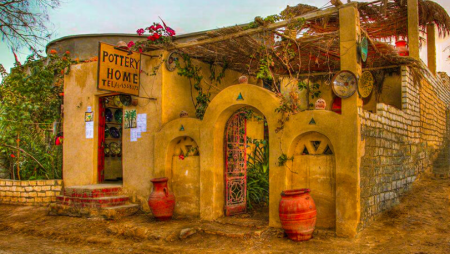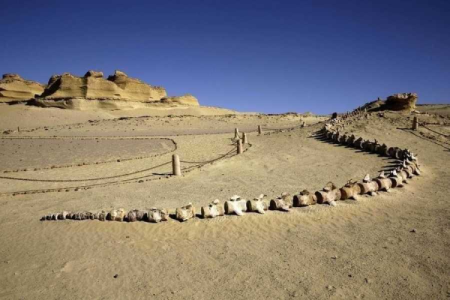Fayoum City
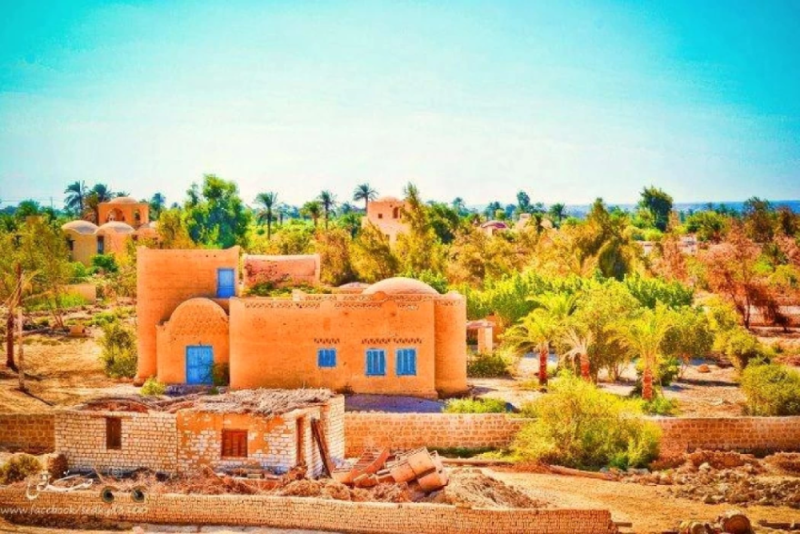
Fayoum City: Egypt's Hidden Oasis of Timeless Beauty
Nestled southwest of Cairo, Fayoum City is one of Egypt's most captivating destinations, blending ancient heritage, natural wonders, and vibrant local culture. This city, often dubbed as Egypt’s ‘miniature paradise,’ offers a breathtaking mix of lush landscapes, sparkling lakes, and archaeological treasures. Whether you’re a history enthusiast, nature lover, or adventure seeker, Fayoum City never fails to amaze. With its proximity to Cairo yet far removed from the capital’s hustle, it’s a serene escape that reveals the heart of Egypt in its purest form. The region’s charm lies not just in its iconic sites like Qarun Lake or the majestic Wadi El Rayan waterfalls but in its people, traditions, and tranquil atmosphere. Fayoum City represents a living museum of Egypt’s evolution — from ancient dynasties to modern-day life.
Just a short drive from Cairo City, Fayoum City offers a wealth of attractions that captivate travelers searching for authentic Egyptian experiences. Between the whisper of palm trees and the glistening desert dunes lies a destination that feels untouched by time. It’s here that visitors can explore prehistoric fossils at Wadi Al Hitan, stroll through the art-filled Tunis Village, and sail across the turquoise waters of Lake Qarun. Simply put, Fayoum City is Egypt’s best-kept secret — a place where nature and heritage meet in perfect harmony.
The Origins and Historical Significance of Fayoum City
Fayoum City’s origins stretch back thousands of years, tracing its roots to the Pharaonic era when it was known as Shedet, the city of the crocodile god Sobek. This divine association gave rise to its ancient name Crocodilopolis during the Greek period. Fayoum is one of Egypt’s oldest continuously inhabited regions, having survived the rise and fall of countless empires. Archaeological discoveries reveal temples, tombs, and ruins that highlight its role as a vital agricultural and spiritual hub. Its fertile lands, nourished by a network of canals sourced from the Nile, made Fayoum the breadbasket of ancient Egypt and a key center of innovation in irrigation and farming techniques.
During the Greco-Roman period, Fayoum flourished with magnificent villas and well-planned towns. The region’s famous Fayoum Portraits — lifelike mummy paintings — remain among the most remarkable artistic legacies of ancient Egypt. These masterpieces reflect the area’s multicultural identity, merging Egyptian, Greek, and Roman influences. Today, visitors seeking to immerse themselves in Egypt’s layered past can easily add Fayoum City to their Egypt Travel Packages and walk through millennia of history etched in sand, stone, and art.
Fayoum’s Natural Wonders: Where Desert Meets Water
What sets Fayoum apart from other Egyptian destinations is its unique geography. Unlike the vast arid expanses that define much of Egypt, Fayoum boasts an unmatched combination of desert and oasis landscapes. The centerpiece, Lake Qarun, one of the world’s oldest natural lakes, attracts migratory birds, fishermen, and eco-travelers. Its shimmering waters mirror the surrounding desert mountains, creating postcard-perfect views at sunrise and sunset. The nearby Wadi El Rayan, with its cascading twin waterfalls — Egypt’s only ones — adds another layer of magic to the region’s natural beauty.
For adventure lovers, Fayoum’s dunes and valleys are a dream come true. Travelers can embark on thrilling desert safaris, sandboarding experiences, and eco-tours that reveal the area’s geological marvels. The nearby Fayoum Oasis stands as a living example of harmony between man and nature, surrounded by farms, palm groves, and traditional mud-brick homes. These landscapes are often featured in Egypt Desert Tours, offering visitors a chance to explore Egypt beyond its ancient temples and monuments.
Tunis Village: Fayoum’s Cultural Heartbeat
Perched along the western shores of Lake Qarun, Tunis Village has transformed Fayoum into a hub for art, pottery, and rural tourism. Once a quiet settlement, it’s now a renowned artists’ enclave known for its distinctive pottery workshops. The village’s charm lies in its earthy aesthetics, warm hospitality, and creative spirit. Local artisans produce handmade ceramics that blend traditional Egyptian motifs with modern designs, earning Tunis international acclaim. Visitors can take part in pottery-making workshops, explore art galleries, or simply wander through the narrow alleys lined with greenery.
This cultural gem plays a key role in sustainable tourism, offering authentic experiences that support the community. Many travelers include Tunis Village as a highlight of their Egypt Excursions itineraries, combining cultural immersion with the natural beauty of Fayoum’s surroundings. From its cozy eco-lodges to local food experiences, the village offers a perfect glimpse into Egypt’s contemporary rural life while preserving its age-old traditions.
Wadi Al Hitan: The Valley of the Whales
One of the most extraordinary attractions near Fayoum City is Wadi Al Hitan, or the Valley of the Whales, a UNESCO World Heritage Site. This otherworldly desert valley holds the fossilized remains of prehistoric whales that once roamed an ancient sea. The site provides a rare glimpse into Earth’s evolutionary story, making it a must-visit for both scientists and travelers fascinated by natural history. The fossils, preserved in remarkable condition, tell the tale of life’s adaptation from sea to land millions of years ago.
Visitors can hike through the valley’s marked trails, explore the open-air museum, and marvel at the surreal scenery of sculpted rock formations. Combining scientific intrigue with cinematic beauty, Wadi Al Hitan is one of Egypt’s top eco-tourism destinations and an essential stop for those seeking unique adventures in the desert.
Fayoum’s Local Life and Cuisine
Fayoum City thrives with a vibrant local culture that blends ancient traditions with modern influences. The community’s daily life revolves around agriculture, crafts, and markets that burst with color and flavor. Visitors are welcomed with genuine Egyptian hospitality, often accompanied by hearty traditional dishes such as molokhia, feteer (layered pastry), and grilled fish from Lake Qarun. Dining in Fayoum is a sensory experience — meals are prepared with fresh, local ingredients and often enjoyed outdoors with panoramic views of the oasis.
Beyond food, Fayoum’s festivals and local crafts reflect its enduring cultural spirit. The annual Tunis Village Pottery Festival attracts artists and travelers from around the world, celebrating creativity, craftsmanship, and unity. Whether you’re exploring bustling souks or sipping tea under a palm tree, every interaction in Fayoum feels authentic and heartwarming — a rarity in today’s fast-paced travel scene.
Travel Tips and Best Time to Visit Fayoum City
The best time to visit Fayoum City is between October and April when the weather is comfortably mild — perfect for outdoor exploration. Summers can get quite hot, particularly in the desert areas, but early morning and late afternoon excursions remain enjoyable. Tourists can easily reach Fayoum from Cairo in under two hours, making it ideal for day trips or weekend getaways. For a more immersive experience, staying overnight in one of Fayoum’s eco-lodges or boutique hotels allows travelers to enjoy the quiet charm of the oasis after sunset.
Whether you’re traveling independently or through customized Egypt Vacation Packages, exploring Fayoum City promises unforgettable encounters. It’s a place for photographers, bird-watchers, history buffs, and anyone yearning for a genuine connection with Egypt’s natural and cultural heritage.
Frequently Asked Questions About Fayoum City
1. Where is Fayoum City located?
Fayoum City is situated about 100 kilometers southwest of Cairo, Egypt. It lies within a natural depression connected to the Nile River through the Bahr Youssef canal, which nourishes its fertile lands and supports the surrounding oasis ecosystem.
2. What are the top attractions in Fayoum City?
Top attractions include Wadi El Rayan, the twin waterfalls, Qarun Lake, Wadi Al Hitan, and the artistic Tunis Village. Visitors can also explore ancient ruins, desert dunes, and charming local markets.
3. How can travelers reach Fayoum City from Cairo?
Fayoum is easily accessible by car or bus from Cairo via the Fayoum Highway. The journey typically takes about 1.5 to 2 hours, depending on traffic. Many tour operators include Fayoum in their Cairo Day Tours for convenient travel arrangements.
4. Is Fayoum City suitable for eco-tourism?
Absolutely. Fayoum is one of Egypt’s leading eco-tourism destinations, featuring protected natural reserves, sustainable lodges, and community-based tourism projects. Sites like Wadi El Rayan and Wadi Al Hitan offer excellent opportunities for eco-friendly exploration.
5. What makes Fayoum City unique compared to other destinations in Egypt?
Fayoum City stands out for its rare combination of desert, lake, and oasis environments. While cities like Luxor City or Aswan City are renowned for monumental temples, Fayoum offers an intimate connection with nature and Egyptian rural life, making it a refreshing contrast to traditional sightseeing tours.
Conclusion: The Everlasting Allure of Fayoum City
Fayoum City is more than a destination; it’s an experience that awakens every sense. From fossil valleys and serene lakes to thriving artisanal villages, it captures the essence of Egypt’s beauty beyond the pyramids. Whether you’re exploring its ancient history, savoring local cuisine, or witnessing breathtaking sunsets, Fayoum promises moments that linger long after you leave. For travelers seeking authenticity, tranquility, and natural splendor, Fayoum City stands as Egypt’s most enchanting oasis — a timeless treasure waiting to be discovered.


